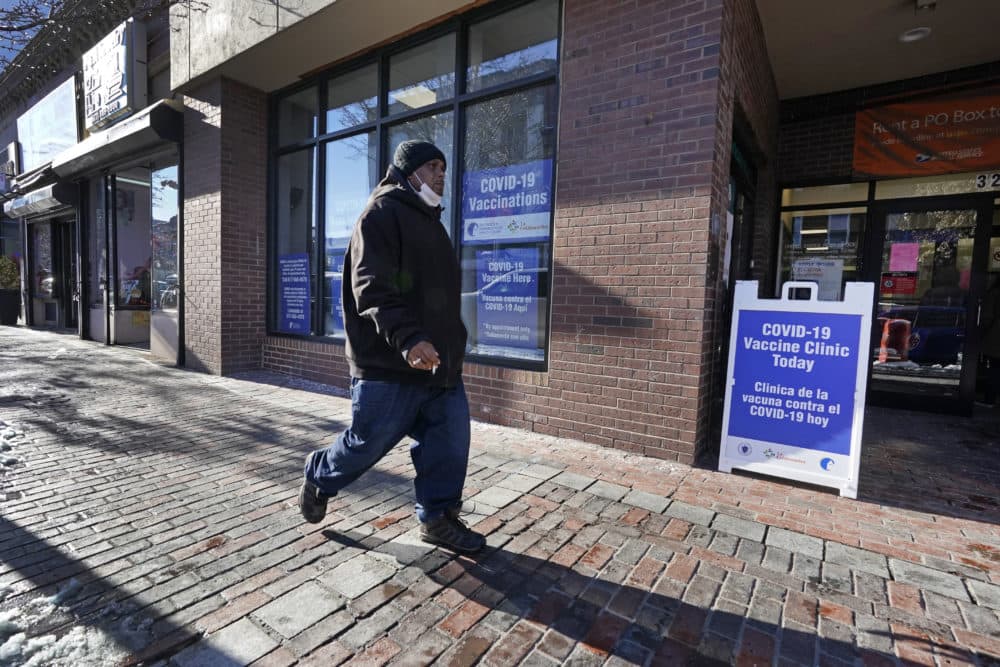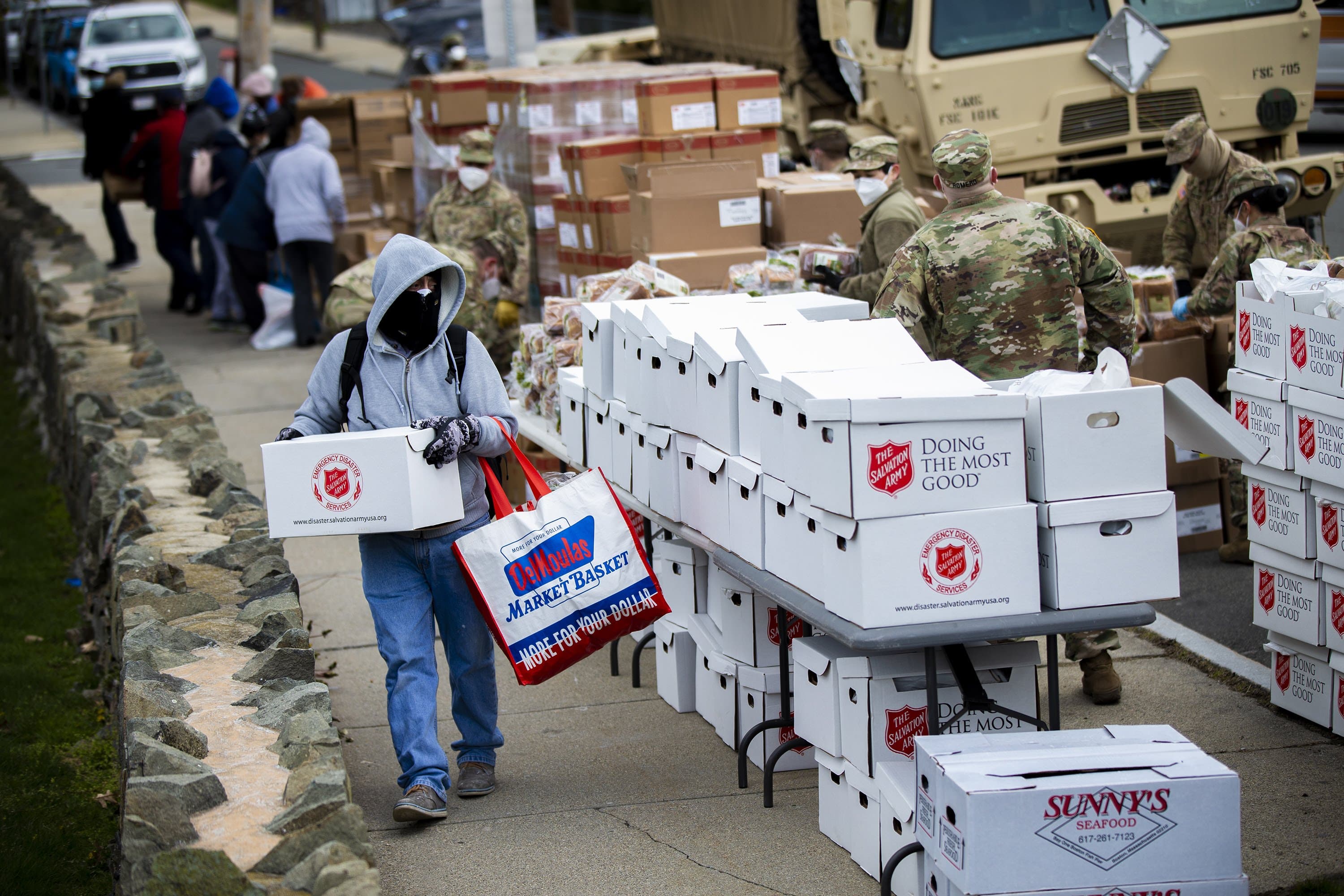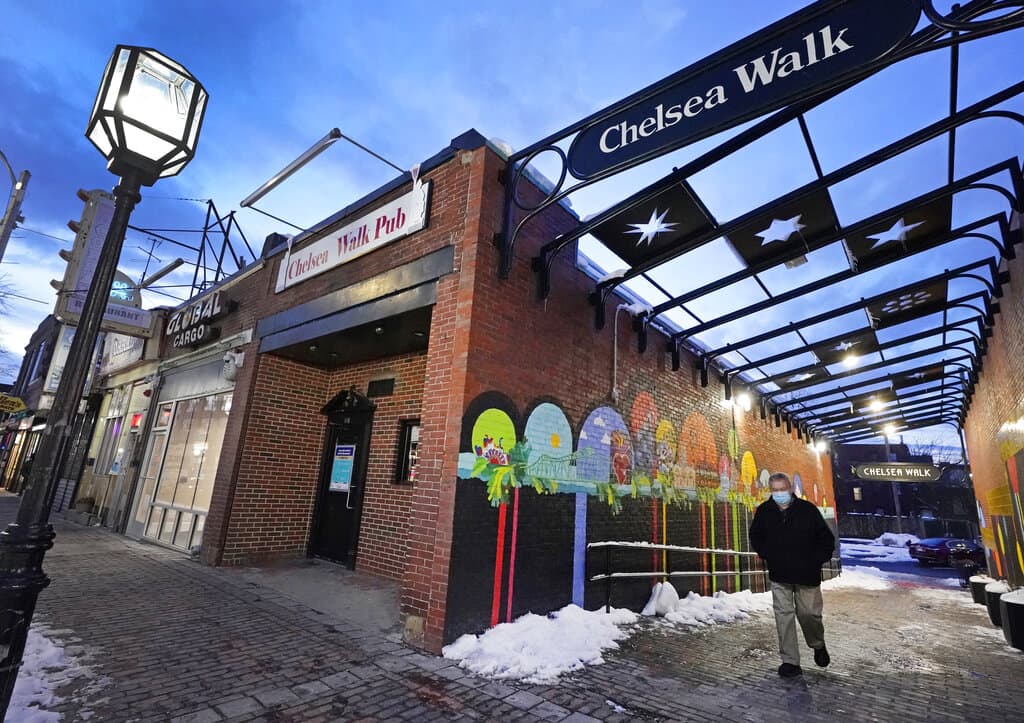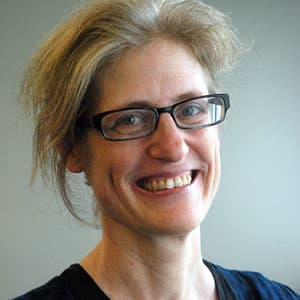Advertisement
A Look Back At A Challenging Year In Chelsea With City Manager Tom Ambrosino
Resume
Chelsea has been especially hard hit by the pandemic. People in the city just north of Boston have been disproportionately affected by the crisis. As the anniversary of the coronavirus shutdown approaches, Chelsea City Manager Tom Ambrosino spoke with WBUR’s Weekend Edition.
Interview Highlights
On the way coronavirus hit Chelsea in the early months of the crisis:
Ambrosino: "We were at levels of contagion that were greater than any other city in the commonwealth or really any other city in the country… But, you know, it really didn't surprise us given that this was an airborne virus. And we have people who live in crowded conditions, who travel to work in crowded conditions, and who work in crowded conditions. So it was sort of a perfect storm of events that created this real extraordinary impact in the city."
On factors that make Chelsea vulnerable:
Ambrosino: "So many of our residents were — and still are — essential workers that even after the shutdown they were going to work. And that certainly didn't help our situation and probably helped increase the numbers substantially… Part of the problem here [is] with the lack of affordable housing — in order to afford to live, people double up, triple up with different families, with roommates. And so we do have crowded housing conditions here.
"And that certainly was problematic when you had a virus where people need to isolate from each other. They shouldn't be sharing bathrooms or living space. And that was really impossible in a city like Chelsea... We have a lot of environmental factors here. People already have high levels of asthma and respiratory problems because we're right next to the airport. We're on a major trucking route. We've got Route 1 that cuts right to the heart of the city. So that just exacerbated the problem for a lot of our residents."
On some of the struggles created by the shutdown in Chelsea:
Ambrosino: "We [have] lots of people who work nontraditional jobs. They're under the table. They're undocumented. So when the economy did shut down, no one was using housekeepers and no one was using painters and there were other dislocations. Lots of our residents didn't have any income whatsoever coming in and were not entitled to any kind of traditional government benefits — no unemployment, no stimulus money. And so it was really challenging here. We had many, many residents who were basically without any source of income."
On Chelsea Eats, a pilot program of a public-private partnership that provides cash assistance directly to some low-income residents:
Ambrosino: "It was intended to replace the daily food pantries, at least the ones the city was operating. And it is...a debit card in which we load...cash so that people can go and buy food and other necessities at their convenience. They don't have to wait in long lines. They don't have to lug heavy boxes of food. They're not subject to eating food that they don't particularly like. So we found this was a much more efficient way in which to meet this emergency.
"I think many have commented that this particular pandemic laid bare lots of underlying inequities in society. And it's something that we need to try to address on a public policy level once we can get through the crisis."

On how the pandemic points to the need for a range of improvements:
Ambrosino: "I think we have to put a lot of effort into building more affordable housing in this region. That will certainly help the situation. And, you know, I do think it has brought to light the real serious problem of food insecurity…I hope our Chelsea Eats debit card program is a pilot for how to effectively give relief to people facing food insecurity. Just loading cash on a card unfettered, no restrictions...We're studying that program academically. And I expect that when the results are released by the Harvard Kennedy School, that is going to show that people were responsible in the way they spent money and that this is a very effective and beneficial way to provide safety net support to individuals in this country."
On the lessons from the past year for government:
Ambrosino: "One thing that a lot of us leaders in this area learned is how effective it was for all of us to work collaboratively and work together. We did a lot of things as a region...For instance, we collaborated with Revere to open an isolation hotel when we had no room for people...
"I think many have commented that this particular pandemic laid bare lots of underlying inequities in society. And it's something that we need to try to address on a public policy level once we can get through the crisis."
Chelsea City Manager Tom Ambrosino
"So I think that was one thing we learned — the value of regional efforts…I think to the extent that anyone was skeptical that collaboration and regionalization was the way to go in the future, I think that we've eliminated the skeptics."
On what he’s learned about city residents during the past year:
Ambrosino: "To the extent there is any bright light out there as a result of such a devastating virus, it was the resilience that was shown by the people of Chelsea and the way in which the Chelsea community rallied to help its own. We had community members that worked tirelessly, the whole pandemic, helping out their neighbors. And I think all of us were so blessed to see and so warmed in our heart by seeing the level of collaboration and cooperation that existed in this community among nonprofit institutions, elected officials and just regular residents stepping forward in a time of desperate need."

On what 2020 taught him about himself:
Ambrosino: "I've been in public service and in government service for over 30 years now in a variety of roles. No doubt this was the toughest year of my career. I think the only lesson is: all you can do every night is do your very best. There were so many decisions we had to make, lots of them that turned out to be wrong. And we switched gears the very next day and did something different. So I think we were all trying to do the very best we could. And I think the lesson learned is just try to do something. And every day I would tell my staff, 'This problem is overwhelming us all. We can't solve every problem and we won't — let's just every day try to do the very best we can.'"

